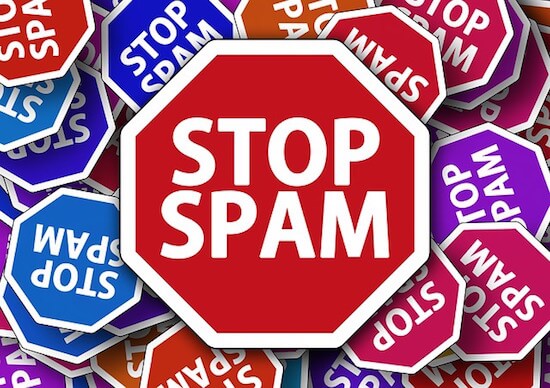One of the most frequent and the most effective ways hackers or any other unscrupulous third parties can steal your passwords and other confidential information is by sending you SPAM emails and phishing attempts. Those messages that often go straight to your junk folder are messages that are sent by bad people that are interested to take your money, steal your information, or do any other harmful things to you.
But sometimes, those SPAM messages don’t get filtered to your junk folder, and instead, they can reach your inbox. Phishing attempts, on the other hand, are the methods done by cyber criminals to steal passwords and other important information by creating fake websites that resemble the legit ones. SPAM emails and phishing attempts go hand-in-hand, and you need to be aware not to get caught in this scheme. Here are some tips to prevent email SPAM and phishing attempts easily:

1. Use a Good Anti-SPAM Software
For regular users that use free email services like Gmail or Outlook, most of the time they don’t need to worry about getting SPAM messages delivered to their inbox. This is because these email services have built-in SPAM filtering system that automatically sends junk messages into the junk folder, which is good. However, it is not always effective as SPAM messages are sometimes still delivered into the main inbox. This is not to mention that many smaller email service providers still don’t have any SPAM filtering system in place.
This is precisely why you need to have an additional protection against SPAM messages by using a good anti-SPAM software. With the good anti-SPAM software, you will be able to ensure that your inbox stays clear from SPAM and other malicious messages.
2. Don’t Open Suspicious Emails
Most junk messages contain links that, if you click on it, you will be directed to a fake website that asks you to fill out your personal information. This is called a phishing website, and you need to stay away from this type of website. Or, the junk messages that you receive might contain some suspicious attachments that, if you click on it, will install spyware and other malicious software into your system.
This is why you shouldn’t open any suspicious emails as the mere act of opening it will expose your privacy in danger. You don’t want to visit a fake website or download a malicious file into your system accidentally.
3. Check Thoroughly the Link that You Visit
Even when you think that you are getting a legit email from a person or company, you need to always check the link that you visit. Check if there is anything that you find suspicious. Check whether the https address is there and check whether the domain name is the correct one. This is necessary because most phishing emails will persuade you to click on a link to a fake website, and the domain name will be similar to the real one.
So, for the untrained eyes, they might accidentally click on a link to a fake website thinking that it is a legit website. Thus, to avoid any phishing attempts on you, always be vigilant when you click on the link to any website which is included in the email.
4. Use a Good Password Manager Software
Did you know that a good password manager software is not just a tool for you to store your complex passwords? If you didn’t know about it, you have to know that a password manager software is usually packed with other security features. It’s not just a tool to store complex and difficult-to-remember passwords. It is also packed with security features that prevent you from entering your passwords into illegitimate websites.
While your browser has its own password manager feature, it will never be as good as a dedicated password manager software. It can integrate with most browsers today, and it will prevent you from phishing attempts in a better way.
5. Protect Your Network with a VPN
When hackers are able to enter your unprotected system silently via your unprotected network, it will pose you to a great risk for your privacy. The hackers will then be able to take control of the system and listen to all of your online communications, including your email communications. He can even send a SPAM or phishing email to you from within your network. This is why installing a VPN is necessary if you want to stay protected online.
VPN can protect your email communications and prevent any bad or malicious emails from reaching your inbox. It can also give your network more security and privacy, which ensures that you can browse the internet with a more peace of mind.
